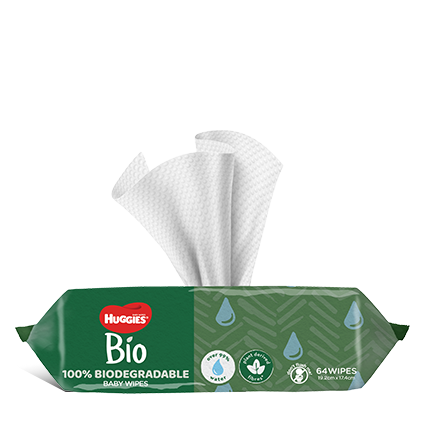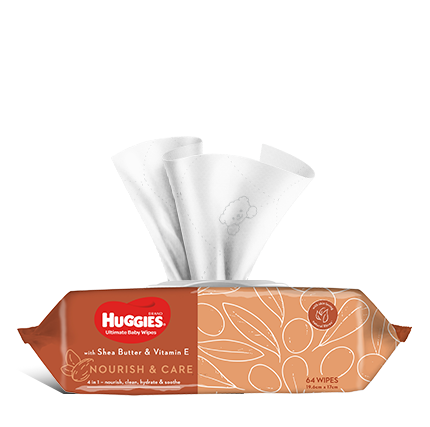Your newborn – Getting acquainted
Making the shift from pregnant to parent is a big psychological adjustment, especially with your first baby.
You do need to take some time to get to know the new little person in your life. This is the beginning of your lifelong relationship and these first few months of life with your new baby will hopefully be a time of wonder as you watch this tiny person grow.
Many women fall instantly in love with their new baby and can happily spend hours each day in the weeks and months after their baby arrives, gazing at their tiny perfect features.
These intense, loving and protective feelings can be very strong and some mothers become very anxious if they are away from their baby for even a few minutes.
Bonding takes time
But instant bonding isn’t universal; sometimes, for medical or other reasons, one or both parents can’t spend much time with their baby just after birth.
Other times, parents (particularly new mums) can feel a bit shocked after going through labour and birth, or feel a bit let down by the whole thing. These are pretty natural reactions, too.
Don’t feel guilty if you don’t experience instant love; you can’t force bonding, it’s quite normal for it to take some time for strong feelings to develop for anyone new in your life, including your new baby.
Being the main caregiver for your baby over the coming weeks and months and getting to know their cries, their needs and seeing their personality shine through is the best way for a true, deep bond to develop between you.
In time, you’re bound to fall head over heels with your baby – maybe when you see their first smile.
Just remember to give then lots of cuddles and lots of eye contact and in time, you won’t be able to imagine life without them.
However if you find after a few weeks have passed that you’re not feeling more attached to your baby, don’t feel uncomfortable or guilty about raising it with your doctor or early childhood nurse.
Sometimes, this can be a sign of postnatal depression (which is a real – and treatable – illness); sometimes it can mean that you need more support. Whatever the cause, it does happen to some parents and it’s wise to get advice early.
Early days
The first few days after your baby’s arrival are often a blur of visitors, excitement, and learning to breastfeed; it’s a lot to cope with on top of nine months of pregnancy and then the physical demands of birth.
Then there’s all those hormones running rampant – no wonder most new mums end up in tears (called the baby blues) by the third day!
Amid the commotion of the early days, your new baby is probably going to be with you constantly, so you’ll still have plenty of opportunity to admire their tiny fingers and toes and get to know them better.
Don’t feel you have to struggle alone with these things; if you’re in hospital, do make use of all the help and advice around so that you can learn about breastfeeding, bathing, changing, settling and daily care of your baby.
If you had a home-birth or left hospital early, most areas have a home-visiting program available so that you can get some help with learning how to look after your new baby.
There’s also some wonderful community resources available, like the free parent help-lines, breastfeeding support associations and your local early childhood nurse; your caregiver will probably give you a small forest of brochures and information.
You’ll also receive an early childhood record for your child (nicknamed The Blue Book in some states, though it might be purple, red or something else this year!). This is an important book and a place to store information in the years to come about immunisations, growth, doctor’s visits and perhaps baby milestones.
Physical changes
All the hormones that flooded your baby during labour and birth and the arduous journey through the birth canal do take their toll on your new baby and (like you) they will take a few weeks to recover.
The stump of the umbilical cord will usually take one to three weeks to slowly shrivel up into a dried out brown bit of skin, which then falls off on its own. You should never pull the stump off, and try to keep it clean and dry; and the stump should be outside baby’s nappy and exposed to air where possible, to speed the natural drying-out process.
Your baby’s perfect skin might break out in little red or white pimples – a bit like early acne – after the first week or so; these spots, a hormonal reaction called milia will disappear in a week or two.
Your newborn might have baggy skin in a few spots and even be a bit scaly; they might have fine hair (called lanugo) over their back and neck, all legacy from time in the womb.
As they becomes more settled, any squished-up or bruised parts of their body from birthing will return to normal and their ears and eyes will lose their puffiness.
Your baby will slowly lose most of their newborn hair (if they had any!), with permanent hair growing in after around three to four months (though my oldest daughter was nearly three before she had much hair at all!)
Most Caucasian babies have blue eyes at birth, while babies of Asian or African descent usually have brown eyes. Over the next few days, weeks or even months, the iris in your baby’s eyes will slowly change to their permanent colour.
Exposure to light can also affect eye colour in some people, so your baby’s eye colour can even change subtly until adulthood and beyond. And although eye colour is inherited, like skin colour, it’s ‘polygenic’ – meaning it comes from a few different genes, so your children might have all kinds of interesting variations!
Communicating with your baby
Researchers have discovered that newborn babies will recognise familiar voices and instinctively turn towards them (particularly their mother’s voice) from birth.
Many new mums and dads find themselves automatically making eye contact and speaking to their baby in a higher-pitched, soft voice – and this is the perfect way to communicate with them.
They will spend many minutes just staring at your face; you’ll probably find that you naturally cradle them in your arms at the perfect focusing distance of around 20 to 30 cm.
Human faces that react to them, will be their favourite thing to look at; (they might not show much interest in photographs, though.) They will also be more interested in highly contrasting colours, like black and white checks or bright patterns, rather than pastel blends.
It may seem that your new baby is never awake in the first few days after birth but don’t worry, they will soon wake every two to three hours and cry to be fed!
Newborn babies are usually very sleepy; ideally, they will sleep for sixteen to eighteen hours a day, though there are lots of short wake periods in between so it doesn’t seem that they are asleep that long.
Crying is the main way that new babies communicate. After a week or so, many new parents worry that their baby seems to be crying all the time. It’s often reassuring to remember that new babies cry for anything from one to four hours a day; but for some tips, check out our guide to comforting your crying baby.
For a few months, your life might become a blur of feeding, burping, changing, putting baby to sleep with lots of rocking and comforting only to have them wake up again an hour or two later to do it all again.
Though it can be an exhausting and emotional time, it will pass very quickly – and in just a few months, your baby won’t be a newborn any more. Don’t forget to enjoy this wonderful time getting to know your new baby – it’s the beginning of the rest of your life together.
By Fran Molloy – journalist and mum of 4
For more information see Newborn care or Baby Care.
Last Published* May, 2024
*Please note that the published date may not be the same as the date that the content was created and that information above may have changed since.


















